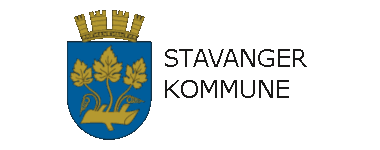The Regional Studies Association – regionalstudies.org
Archives: Schedule
Post Type Description
Keynote Session
Universities and the Geography of Innovation
Room: Energy Hall
Chair: Rune Dahl Fitjar – University of Stavanger, Norway
| Meric Gertler – University of Toronto, Canada | Curating Local Innovation Ecosystems: The Evolving Role of Universities |
| Shiri M. Breznitz – – University of Toronto, Canada | Entrepreneurship and the University: Old wine in a new bottle? |
Registration
Buses leave for airport
Buses to the airport will depart at 15:10
End of conference/Energy Break
Farewell Speech
Reception
Venue: Arkeologisk Museum
| The Reception will take place from 19.00pm at Arkeologisk Museum, Peder Klows gate 30A, Stavanger |
Please note that there will be no dinner at the Reception, only finger food. We expect that most
people will continue to town after the reception to eat dinner. The following restaurants can be
recommended in the city centre: Villa 22 (Italian – $$), Fisketorget (Seafood – $$$), Renaa Matbaren (European/Scandinavian – $$$), NB Sørensen (European/Scandinavian – $$), Olivia (Italian – $$), Fish & Cow (Seafood and grill – $$$), Bølgen og Moi (European/Scandinavian – $$$), Sumo (Asian fusion – $$), Spiseriet (European/Scandinavian – $$$), Nick & Jonnies (European/Scandinavian – $$$), Harry Pepper (Mexican – $$$) and Døgnvill (Hamburger – $$).
Buses leave for Reception
End of Conference day
Parallel Sessions B
Universities and the Geography of Innovation II
Room: Energy Hall 3
Chair: Artur da Rosa Pires – University of Aveiro, Portugal
| Utku Ali Riza Alpaydin – University of Stavanger, Norway Rune Dahl Fitjar |
What Do University-Industry Interactions Deliver?: A Broader Perspective on Outputs |
| Manuel Romagnoli – LUISS University, Italy Valentina Meliciani |
The Contribution of University-firms collaborations for innovations in shaping the local technological evolution |
| Sergio Andrés Manrique Garzón – Universitat Autònoma de Barcelona, Spain Emili Grifell-Tatjé |
Assessing the Impact of University-Firm Collaboration on Innovation-related Financial Performance |
| Tamás Sebestyén – University of Pécs, Hungary László Varga Attila Varga |
University-industry research collaboration in leading and lagging regions of Europe – a descriptive analysis |
Clusters, Industrial Districts and Regional Innovation Systems II
Room: Opportunity
Chair: John-Erik Rørheim – University of Stavanger, Norway
| Cilem Selin Hazir – Leibniz Institute of Ecological & Regional Development, Germany | Structural Holes in Temporary Team Networks in Clusters: Origins and Impact on Team’s Innovation Performance |
| Jacopo Canello – University of Groningen, United States Francesco Vidoli |
Formal Cooperation and Knowledge Diffusion in Industrial Districts: The Role of Strategic Alliances |
| Gianluca Capone – University of Parma, Italy Andrea Morrison |
Spinoffs and Parents in Clusters: Evidence from the Italian Motorcycle Industry |
| Davide Vurchio – University of Milan Nicola Daniele Coniglio |
Do Clusters Promote Radical Changes and Economic Growth? New Evidence from Italy |
MNCs, Global Production Networks and Knowledge Spillovers II
Room: Share 1
Chair: Martin Henning – University of Gothenburg, Sweden
| Patrizia Casadei – London School of Economics, United Kingdom Simona Iammarino |
The changing geography of production networks in the textile and apparel value chain: survey evidence from UK firms |
| Alireza Naghavi – University of Bologna, Italy Stefano Bolatto Gianmarco Ottaviano Katja Zajc Kejzar |
Intellectual Property and the Organization of the Global Value Chain |
| Trond Nilsen – Inland Norway University of Applied Sciences, Norway | Understanding the Organizational Configuration of Supply Chains in Global Production Networks |
| Andrea Ascani – Utrecht University, The Netherlands Luca Bettarelli Laura Resmini Pierre-Alexandre Balland |
The sources of innovation: global networks versus local specialization |
Clusters, Global Innovation Networks, and the Globalisation of Knowledge II
Room: Share 2
Chair: Sverre Herstad – University of Oslo, Norway
| Ernest Miguelez – CNRS – GREThA University of Bordeaux, France Julio Raffo Christian Chacua Massimiliano Coda-Zabetta Deyun Yin Francesco Lissoni Gianluca Tarasconi |
Mapping the Global Network of Innovation Clusters |
| Heidi Wiig – BI-Norwegian Business School, Norway Ju Liu Elena Zukauskaite |
Global Knowledge Sourcing in a Digitalized World. Case Studies of ICT and New Media Firms in Oslo, Malmö and Beijing |
| Manuel Molina Vogelsang – Fraunhofer Center for International Management and Knowledge Economy IMW, Germany Benjamin Klement |
Assessing Complementarities in International R&D Networks: Does Relatedness Matter for the Design of International Innovation Policies? |
| Laszlo Lorincz – Centre for Economics and Regional Studies, Hungarian Academy of Sciences Guilherme Kenjy Chihaya Da Silva Aniko Hannak David Takacs Balazs Lengel Rikard H. Eriksson |
Local vs Global Networks of Workers and the Relatedness of their Skills |
Innovation in Peripheral Regions II
Room: Confidence
Chair: Teemu Makkonen – University of Eastern Finland, Finland
| David Fernandez Guerrero – Aalborg University, Denmark | How SME-university Collaboration for Innovation Starts, and Unfolds, in Peripheral Regions: A Matter of Signals from Foreign Customers and Competitors? |
| Geoffroy Labrouche – University of Toulouse Rachel Levy |
Are Small Towns a Good Place for SMEs to Innovate? The Case of 15 Agrifood Innovations in Southwestern France |
| Giulio Cainelli – University of Padova, Italy Chiara Burlina Annunziata de Felice Roberto Grandinetti |
Do Knowledge Spillovers Really Matter for Innovation? Evidence from Europe |
| Hanna Martin – University of Gothenburg, Sweden Roman Martin |
The Role of Demand in Regional Transformation – Examples from the Swedish Periphery |
Innovation Policy for Regions and Countries II
Room: Concentrate
Chair: Corinne Autant-Bernard – Univerrsity of Saint-Etienne, France
| Lars Mewes – Leibniz University Hanover, Germany Tom Broekel |
Subsidized to Change? Analyzing the Impact of R&D Policy on Regional Diversification |
| Diego D’Adda – Università Politecnica delle Marche, Italy Donato Iacobucci Francesco Perugini Roberto Palloni |
What is “Connectivity”? Measuring the Regional Collaboration Potential within the Smart Specialisation Strategy |
| Seija Virkkala – University of Vaasa, Finland Antti Mäenpää Åge Mariussen |
Revealing the Innovation Potential in Baltic Sea Region – Learning among Regions on Smart Specialisation |
| Beata Bal-Domańska – Wrocław University of Economics, Poland Elżbieta Sobczak Elżbieta Stańczyk |
The Identification of Smart Specialisation in Polish Voivodships using Statistical Analysis |
Knowledge Complexity II
Room: Attention
Chair: Saeed Moghadam Saman – University of Stavanger, Norway
| Marcel Bednarz – University of Stavanger Business School, Norway | The spatial diffusion of simple and complex technologies |
| Jessica Salmon – Siena College, United States John Cantwell Lucia Piscitello |
ICT Driven Divergence of Knowledge Complexity and Location Complexity |
| Tom Broekel – University of Stavanger Business School, Norway Lars Mewes |
The long-term evolution of technological complexity and its relation with economic growth |
The Role of the State in the New Generation of Innovation: A Multi-scalar Perspective II
Room: Initiative
Chair: Huiwen Gong – Kiel University, Germany
| Stig-Erik Jakobsen – Western Norway University of Applied Sciences, Norway Arnt Fløysand Rune Njøs |
The role of policy in transformation of industrially specialized regions |
| Robert Hassink – Kiel University, Germany Huiwen Gong |
Towards mission-oriented regional innovation policy? |
| Markus Steen – SINTEF Technology and Society Håkon Finne Eli F. Ullern Teis Hansen Markus Bugge |
Policy mixes for regional green growth |
| Huong Nguyen – Universitat Autònoma de Barcelona, Spain | Overcoming interaction barriers for public sector innovation: reflections from local governments in Denmark |
What Role does the Bioeconomy Play in the Transformation of Regions Towards Sustainable Development?
Room: Focus
Chair: Suyash Jolly, Sweden
| David Ayrapetyan – Leibniz Institute of Agricultural Development in Transition Economies (IAMO), Germany Frans Hermans |
Embedding sustainability of bioeconomy clusters into a multiscalar framework |
| Ram Kamath – Leibniz Institute of Agricultural Development in Transition Economies (IAMO), Germany Frans Hermans Elola Aitziber |
From bioclusters to the bioeconomy: how agency, place- and path dependency shaped the sustainability-transition of the Basque pulp and paper biocluster |
| Milad Abbasiharofteh – Leibniz Institute of Agricultural Development in Transition Economies (IAMO), Germany | Driving forces of invention in European bioclusters |
| Frans Hermans – Leibniz-Institut für Agrarentwicklung in Transformationsökonomien (IAMO), Germany David Ayrapetyan Ram Kamath Kerstin Wilde Milad Abbasiharofteh |
Towards a typology of bioclusters |
| Leonard Prochaska – University of Greifswald Daniel Schiller | The transition of innovation policy from biotechnology to bioeconomy at the regional level – A comparison of first movers, followers, and latecomers in Germany |
The Dark Side of Innovation in Times of Shifting Technological Paradigm
Room: Energy Hall 1
Chair: Elisa Giuliani – University of Pisa, Italy
| Davide Consoli – INGENIO(CSIC-UPV), Universitat Politècnica de València, Spain | Green employment, innovation and income distribution |
| Elisa Giuliani – University of Pisa, Italy | Companies love innovation, but does the planet love it too? |
| Chantale Tippett – NESTA, United Kingdom Juan Mateos-Garcia | The complex economic geography of AI, and its risks |
| Simona Iammarino – London School of Economics, United Kingdom | The Dark Side of Innovation: Technological Change and Conflict Minerals in a Shifting Industrial Landscape |
| Maria Savona – SPRU, University of Sussex, United Kingdom | The value of data. Towards a framework to redistribute it |






